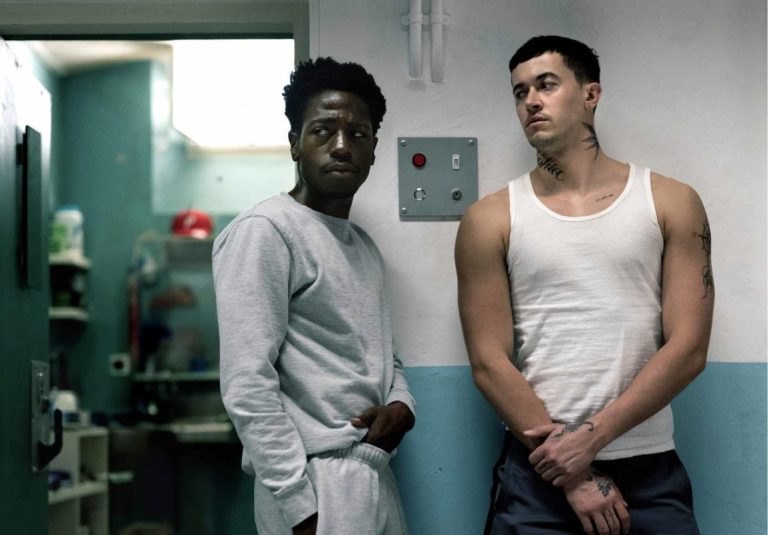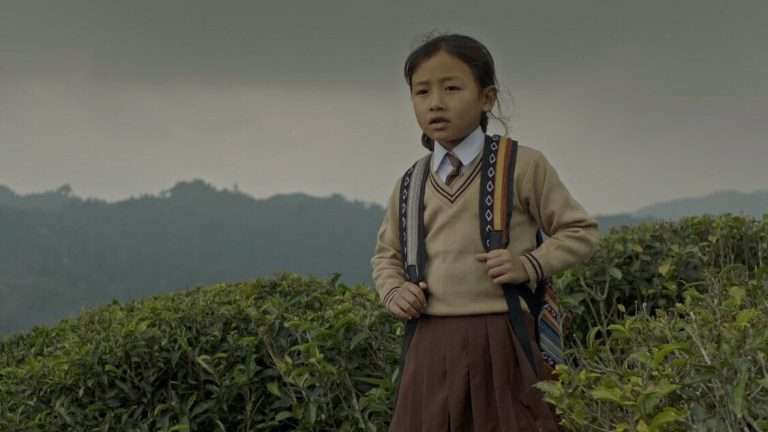There’s much sadness that hangs heavy over Koya Kamura’s “Winter in Sokcho” (2024, Hiver à Sokcho). Soo-Ha (Bella Kim) leads an unobtrusive life in the sleepy seaside town of Sokcho. She is a skivvy at a small hotel, Blue House. Soo-Ha is super-diligent at her job but seems hollowed out by a sustained, numbing grief. She is looking for answers, which her mother is more eager to obscure.
She’s got a partner but her interest in him has dissipated. Furthermore, she proceeds through the motions of the day phantom-like, uncomplaining, and deeply sunk in a torpor of soul. It’s when a French traveler lands at the doorstep of the hotel, a renowned comics writer Yan Kerrand (Roschdy Zem, excellently wielding reserve and magnetism) that something profound shifts within Soo-Ha.
Kamura tells the story with tenderness and ache. It’s so subdued it’s almost like a whisper. The film demands a gentle immersion. You may get restless and impatient at the artfully retracted sense of pace. The drama is distilled into a bare emotional landscape, where the character pines for a connection with her father whom she has never met. Therefore she vests all the yearning for him in the French tourist.
On his very arrival at the boarding house, she is intrigued. However, she is also vexed at the overt ways in which he presents his specific demands with little or no leeway. She can’t help but be drawn towards him. A slow, steady bond develops between the two. Exchange happens. Or is she just projecting it? Is he at all interested in deepening it? When he realizes she may be exerting too many expectations, he flinches and withdraws. This strikes her with the force of a terrible betrayal. But he also unequivocally clears the air with her, reminding her she’s piling too much on him. He can’t give her the closure she desperately pursues.
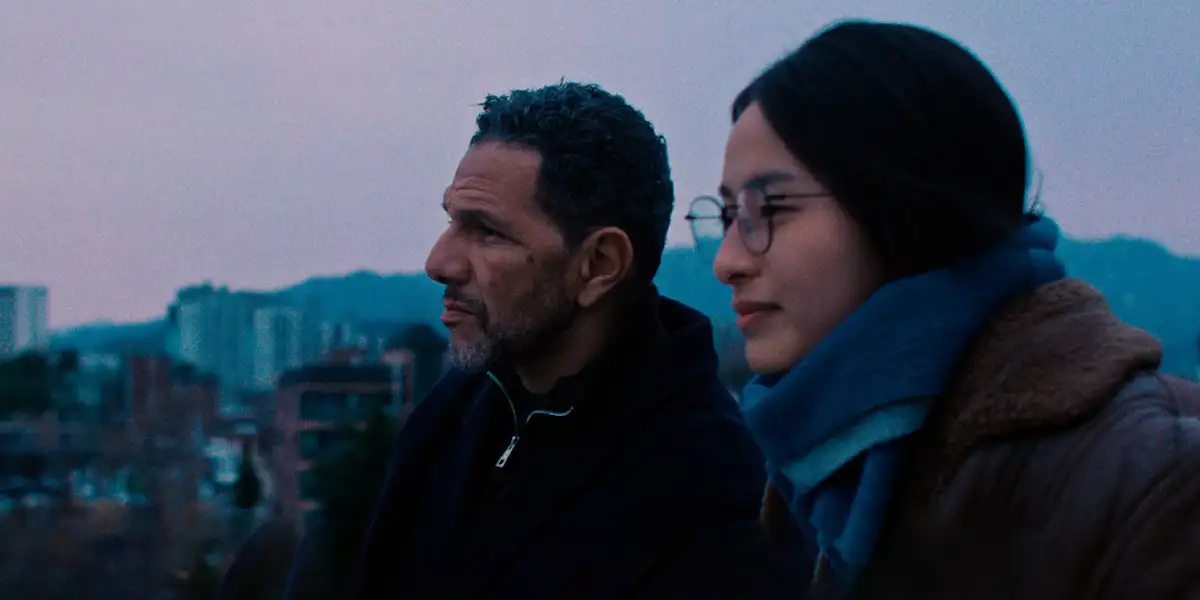
Deferred closure and clarity have long stunted her emotional comprehension. She’s stuck. It circles and shades every relationship she has, be it with her boyfriend or mother. She can’t move ahead because there is this stuff she believes she ought to confront and resolve. Bella Kim captures the stasis with minimal fuss, stirring an emotional avalanche in the smallest of gestures and searching glances. Her quietly magnificent performance is the key to “Winter in Sokcho.” What’s less persuasive are the animated sequences which unveil her pent-up anxieties. They start off as cool and inventive, springing from or rather conjoining with the art of Kerrand. But soon repetitiveness wends in.
Nevertheless, there’s an undeniable emotional congruence that spills out. Soo-Ha feels seen and acknowledged in the melancholic art, finding in it something kindred and deeply intimate and authentic to her private repressed emotion. The shapes and lines in his art tap into her tumultuous, guarded psyche. The equation that builds between Soo-Ha and Yan, understated and potent, plays out with glimmers of curiosity, especially from her side.
“Winter in Sokcho” draws a muted vigor from Kim’s delicate performance. It can take an utter stranger to discover what one needs to tackle head-on and embrace. There’s also a refreshingly underplayed strand of dysphoria. Set in a barren wintry landscape, the film walks gently, never imposing a set of dramatic moments on us. In fact, when the mother-daughter confrontation pops up, the film feels unsteady and retreads all the fault lines that had already been evoked. You wish the film didn’t have to overtly reinforce this. Nevertheless, the storytelling is so arrestingly hushed you stay emotionally by the heroine’s side throughout. The deep well of isolation gets under the skin.



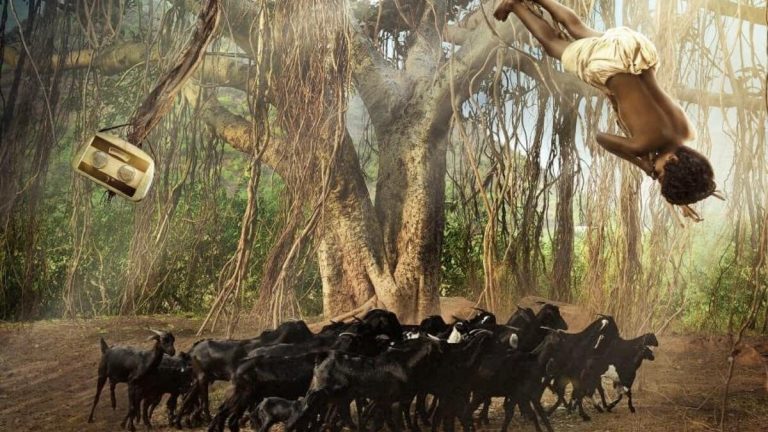
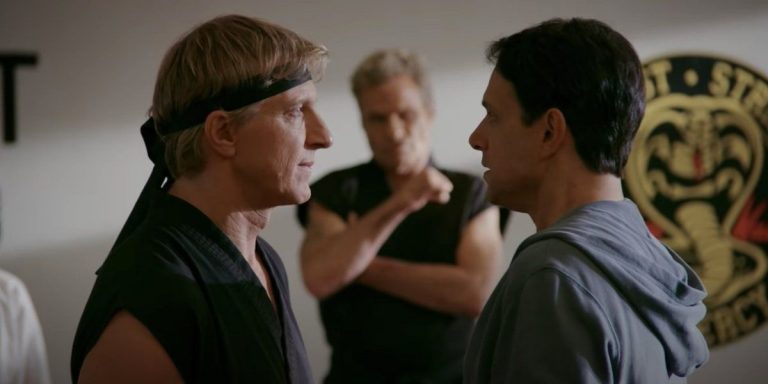
![Random Acts of Violence [2020] Review – A meta-critic of the glorification & fetishization of cruelity in art](https://79468c92.delivery.rocketcdn.me/wp-content/uploads/2020/08/Random-Act-Of-Violence_Review-hof-768x512.jpg)
![Coco [2017]: Pixar’s Dazzling Tribute to Power of Family Affection And Cultural Beliefs](https://79468c92.delivery.rocketcdn.me/wp-content/uploads/2017/11/coco-1920x1200-miguel-dante-hector-pixar-animation-2017-hd-4k-10160-768x480.jpg)
